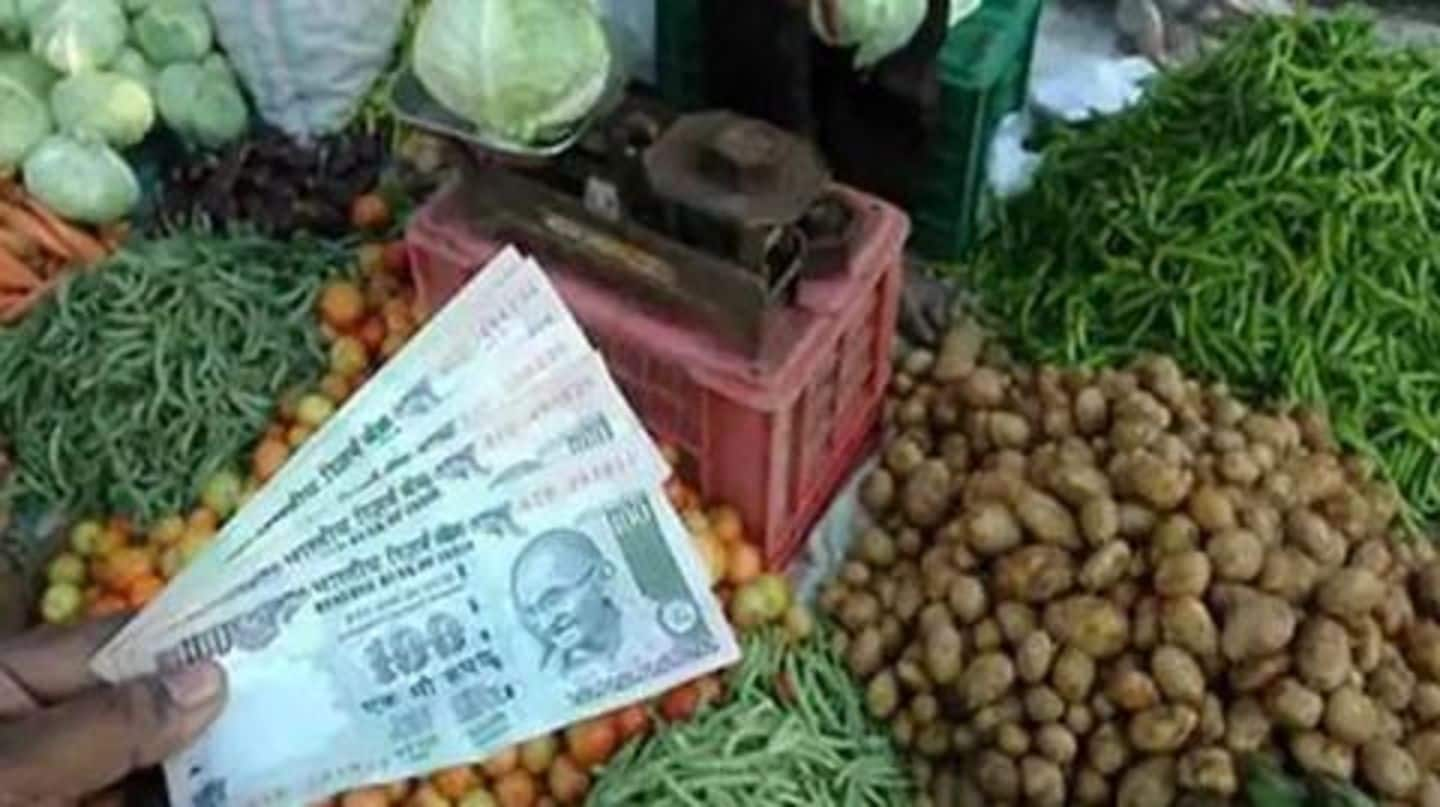
Retail inflation recorded at 7.35% in December, highest in 5-years
What's the story
India's retail inflation stood at 7.35% in December last year mainly due to the rise in vegetable prices, data released by the Ministry of Statistics & Programme Implementation (MoSPI) revealed on Monday. The inflation based on the Consumer Price Index (CPI) is at its highest since July 2014 (7.39%). With this, the CPI has breached the Reserve Bank of India's upper margin of 6%.
Details
Vegetable inflation stood at 60.5% in December
According to the government data, retail inflation in December stood at 7.35% against 5.54% the month before and 2.11% in December 2018. Meanwhile, food inflation based on the Consumer Food Price Index (CFPI) climbed to 14.12% against 10.01% the previous month and (-)2.65% in December 2018. Notably, vegetable inflation stood at 60.5% in December 2019 against 36% the previous month.
Key developments
Retail inflation breached RBI's upper margin after 29 months
The Centre has mandated the RBI to keep inflation in the range of 4% with a 2% margin on either side. The December CPI marks the third straight month when retail inflation has breached the 4% medium-term target. Further, the CPI has breached the upper limit of 6% for the first time since July 2016, when retail inflation climbed to 6.07%.
Information
Core inflation stood at 3.7% in December
Separately, core inflation stood at 3.7%. Fuel and light inflation was seen at 0.7% while household goods and services grew by 1.75%. Health inflation stood at 3.8% and housing grew at 4.3%. Pulses and products recorded inflation of 15.44%. Meat and fish prices rose 9.57%.
Prediction
'Single biggest factor for this increase is onions'
A Reuters poll of nearly 50 economists had earlier predicted a 6.2% rise in retail inflation in December. Aastha Gudwani, India economist at BofA Global Research, had told the news agency, "The single biggest factor for this increase in headline inflation is onions. While there is some sort of increase in other food prices as well, we don't see that to be extremely alarming."